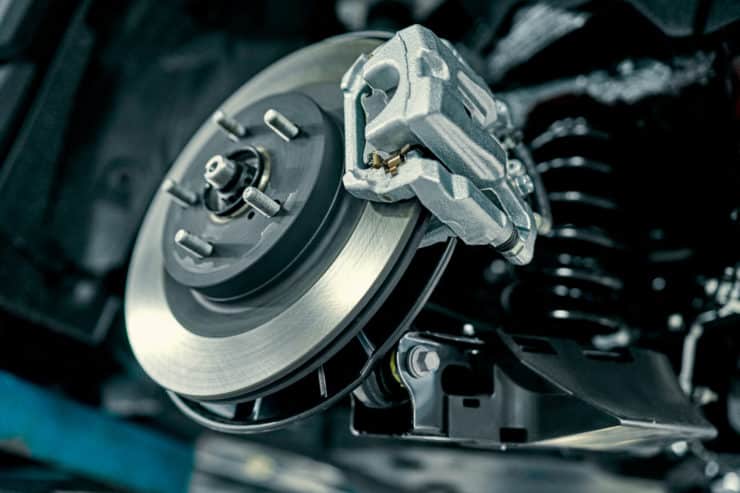FAQ
Mercedes-Benz SUV Brake Lawsuit
Mercedes-Benz issued a recall recommend that people discontinue driving its 2006 to 2012 GL, ML, and R-class SUVS and minivans. The recall affects an estimated 292,000 vehicles whose brakes may malfunction or fail. Affected vehicles include gasoline, diesel and electric versions manufactured during this period.
Recalled Mercedes-Benz SUVs and Minivans include:
- 2007 Mercedes-Benz AMG R63
- 2007-2011 Mercedes-Benz AMG ML63
- 2007-2009 Mercedes-Benz GL320
- 2010-2012 Mercedes-Benz GL350
- 2007-2012 Mercedes-Benz GL450
- 2008-2012 Mercedes-Benz GL550
- 2007-2009 Mercedes-Benz ML320
- 2006-2011 Mercedes-Benz ML350
- 2010-2011 Mercedes-Benz ML450
- 2006-2007 Mercedes-Benz ML500
- 2008-2011 Mercedes-Benz ML550
- 2007-2009 Mercedes-Benz R320
- 2006-2012 Mercedes-Benz R350
- 2006-2008 Mercedes-Benz R500
- 2008 Mercedes-Benz R550
Additional year-models may also have the same brake booster problem with some estimates showing the number of vehicles affected worldwide as close to 1 million.
Mercedes SUVs and Minivan Brake Failure
Mercedes-Benz has recalled nearly three hundred thousand SUVs and minivans over concerns that the brakes may malfunction or fail completely. The potential brake failure may be the result of corrosion which occurs due to moisture accumulation in the brake booster housing. The affected vehicles do not utilize an aesthetic rubber sleeve around the brake booster housing, which in other models may have prevented similar problems.
Moisture that enters the brake booster housing may result in leakage of brake booster, leading to increased force required to slow vehicle. This may also increase potential stopping distance and in severe cases of corrosion, mechanical brake failure may occur, leaving brakes inoperable.
Mercedes has indicated that the problem only affects the main brake pedal and does not impact the emergency brake, even if it is operated by foot. The company has urged that the vehicles not be driven until the brakes have been inspected at a Mercedes-Benz dealer auto repair center.
Brake corrosion in Mercedes SUVs or Minivans may cause:
- Hissing or other airflow noise when braking
- Lack of brake responsiveness
- Need to press harder than normal on brake pedal
- Difficulty slowing or stopping
- Brake failure
Though no serious events caused by brake failure have been reported, risk of brake failure may include stranding of car occupants, crash, injury, or death and poses a risk to all passengers and others on the road.
Mercedes-Benz SUV Brake Corrosion Repair Continued Risk
Mercedes began investigating the brake issues in July 2021 due to a report from a customer outside of the U.S. but did not address the problem until September 2021, when the company began a study. The recall for the potential problem was not deemed a safety risk until May 2, 2022.
Mercedes has indicated that complimentary towing will be offered to affect repairs in brake corrosion recall. The recall order includes removal of the rubber surrounding the brake booster housing to allow for inspection of the brakes and additional testing
Results of recall inspections may include:
- Vehicles which do not exhibit “advanced corrosion”, no additional action is being taken
- Vehicles that show advanced corrosion require additional testing.
- Those with corrosion that pass testing may continue to be operated for two years.
- Those with corrosion that do not pass testing require brake booster replacement.
Mercedes may also have delayed direct recall notifications to owners and operators with some reporting that they had not received notices until May 2023.
Mercedes-Benz Brake Recall Continued Risk
If brake replacement of the affected Mercedes SUV or minivan is required but cannot be completed immediately, Mercedes-Benz dealers have been instructed to “coordinate” with the individual customer for transportation.
This may leave the owner or driver of an affected Mercedes SUV or minivan at the mercy of individual dealerships, service managers or rental car agencies who are unable to supply adequate towing or replacement transportation at no charge.
Owners and operators of recalled vehicles who do not qualify for immediate replacement may continue to be at risk if corrosion advances before a reinspection occurs.
Mercedes-Benz Brake Lawsuit
Mercedes-Benz SUV and Minivan owners and operators who have been affected by the brake corrosion recall may have been placed at risk of accident, serious injury or death. They may also have been left stranded, without an operable vehicle or subject to repairs and other costs, prior to the occurrence of the recall. In addition, owners may face loss of vehicle value after they purchased an automobile that was intended to be “safe”, “reliable” and “long-lasting”.
People who own or operate 2006 to 2012 Mercedes-Benz SUVs or minivans Mercedes may be eligible for compensation for their damages and should seek legal advice.
